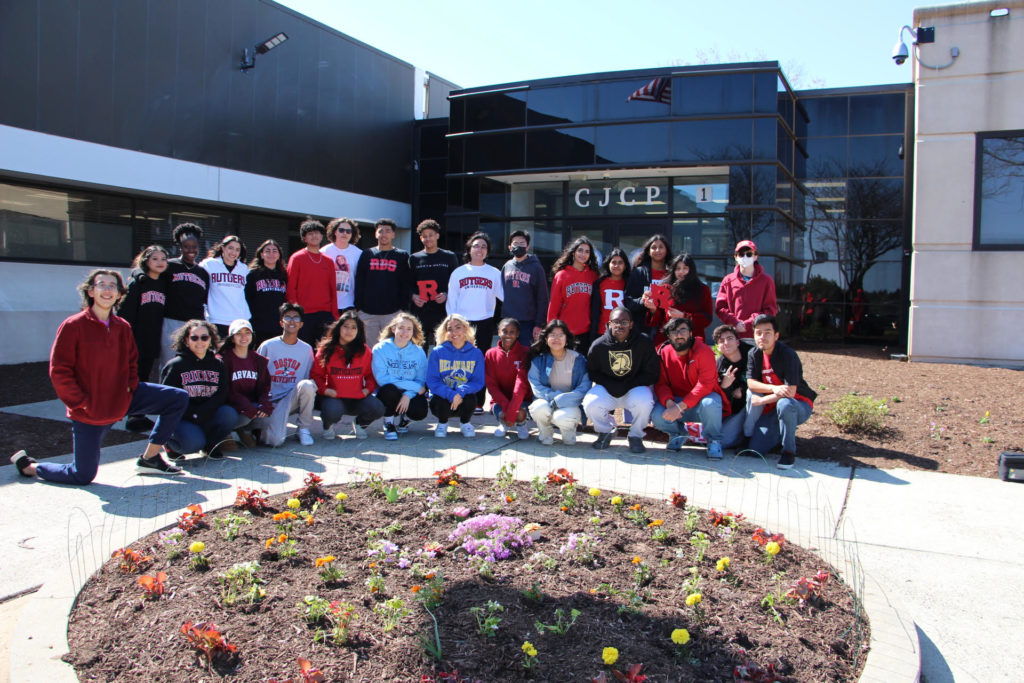No matter the color of their skin, how much money their parents have, or whether their parents went to college, if provided with opportunities, kids will succeed.
That’s Dr. Namik Sercan, Chief Education Officer of Central Jersey College Prep Charter School. The last decade has justified his credo, as the the school, with campuses in Somerset and New Brunswick, is celebrating that 100% of its senior class has been accepted to a college or university, an unbroken track record since 2011. U.S. News and World Report recently announced that Central Jersey College Prep (CJCS) is the top public charter high school in New Jersey, and ranks #32 among all 406 NJ high school, as well as #707 out of nearly 24,000 public high schools in America. In 2016 CJCP was named by the U.S. Department of Education as a “Blue Ribbon School,” the highest possible designation granted to a K-12 school. In 2020 it was named as a “National School of Character.”
How does CJCS —where 89% of students are Black, Brown, or Asian— make this work in an educational system that, says Sercan, has “traditionally ignored the needs of students of color”?
Through high expectations, lots of support, and offering families opportunities that aren’t available in their zoned school district.
According to US News’ algorithm, 70% of CJCS students who graduate high school are prepared for college-level math courses compared to the NJ state average of 30%. Eighty-one percent of CJCS students are prepared for college-level reading/writing courses compared to the NJ state average of 60%.
Sercan ascribes the success to “an effective structure where we push and support students.” Everyone takes honor’s level classes, even if they require accommodations like one-on-one tutoring and/or supplemental instruction. “Our kids take algebra in 8th grade, sometimes 7th,” explains Sercan. “If we hold them back, they’ll never get the skills they need to succeed, whatever their career path.” As a result, 66% of students enroll in AP courses, twice the state average, and more than twice as many get 3 or better on the end-of-year tests, (indicating college-level work) than the rest of NJ public high schools.
A few days ago in the Washington Post Jay Mathews called this approach the “often-overlooked secret” for “revealing the potential of even disadvantaged teenagers to succeed when given a chance to do college work with encouraging teachers.” Most high schools, he writes, provide few such opportunities, even disallowing students from taking AP courses if they don’t have high grades in the relevant subject. Yet,
Students who fail difficult AP and IB exams often get as much out of the experience as those who pass. They realize from their own academic progress and the success of older friends in college that they learn more when forced to try harder courses than when taking easier courses as their neighbors do in regular schools. Their teachers cheer them on and show them how much they have improved.
Let’s compare CJCS’s 66% of students who take AP courses with the three districts where it draws its enrollment. Franklin Township enrolls 40% of its students in AP courses, North Brunswick enrolls 38%, and New Brunswick just 21%. If Mathews is correct, those students are being cheated, regardless of how well they do on AP exams.
CJCS encourages students to use dual enrollment, especially important for the 35% of students enrolled who will be the first person in their family to attend college. The charter partners with Raritan Community College and Middlesex Community College so that 77% of high school students not only get high school credit for some of their courses but college credit too.
How do the three districts CJCS draws from compare in this category? Nine percent of Franklin Township students are in dual enrollment courses. In North Brunswick and New Brunswick 0% are. (Perhaps it’s no surprise that during last year’s lottery, which is weighted to provide an advantage for low-income and homeless students, 1,400 students applied for 150 seats.)
Parents need support too. Some, Sercan said, “are new immigrants who never went to college and may not speak English.” So CJCS offers parent workshops on everything from securing financial aid (the high school has a dedicated college admissions counselor to sit with students and parents as they fill out paperwork) to evaluating your child for special education to diversity and inclusion. (All are online here and free to the public.)
In addition, CJCS offers former students support in college. “When they need help, they reach out to us,” explains Sercan. “Since we’re teaching these courses on our own campus, we match them with an instructor. Our students stay enrolled.”
This year’s senior class will be attending Harvard, West Point, honors programs around the country, and schools throughout New Jersey, including Rutgers, Rider, Kean, and Montclair State. Debora Ortega-Maldonado, who started CJCS in sixth grade, says, “I got accepted from Princeton, Yale, Harvard, Columbia, NYU, William & Mary, USC, BU, and decided to go to Harvard.” Vernon Spencer, who is going to West Point, says, “I am thankful for my family and teachers, who helped me become the best version of myself.”
Time to draw attention to that overlooked “secret” so more students have the opportunities of those at CJCS.




